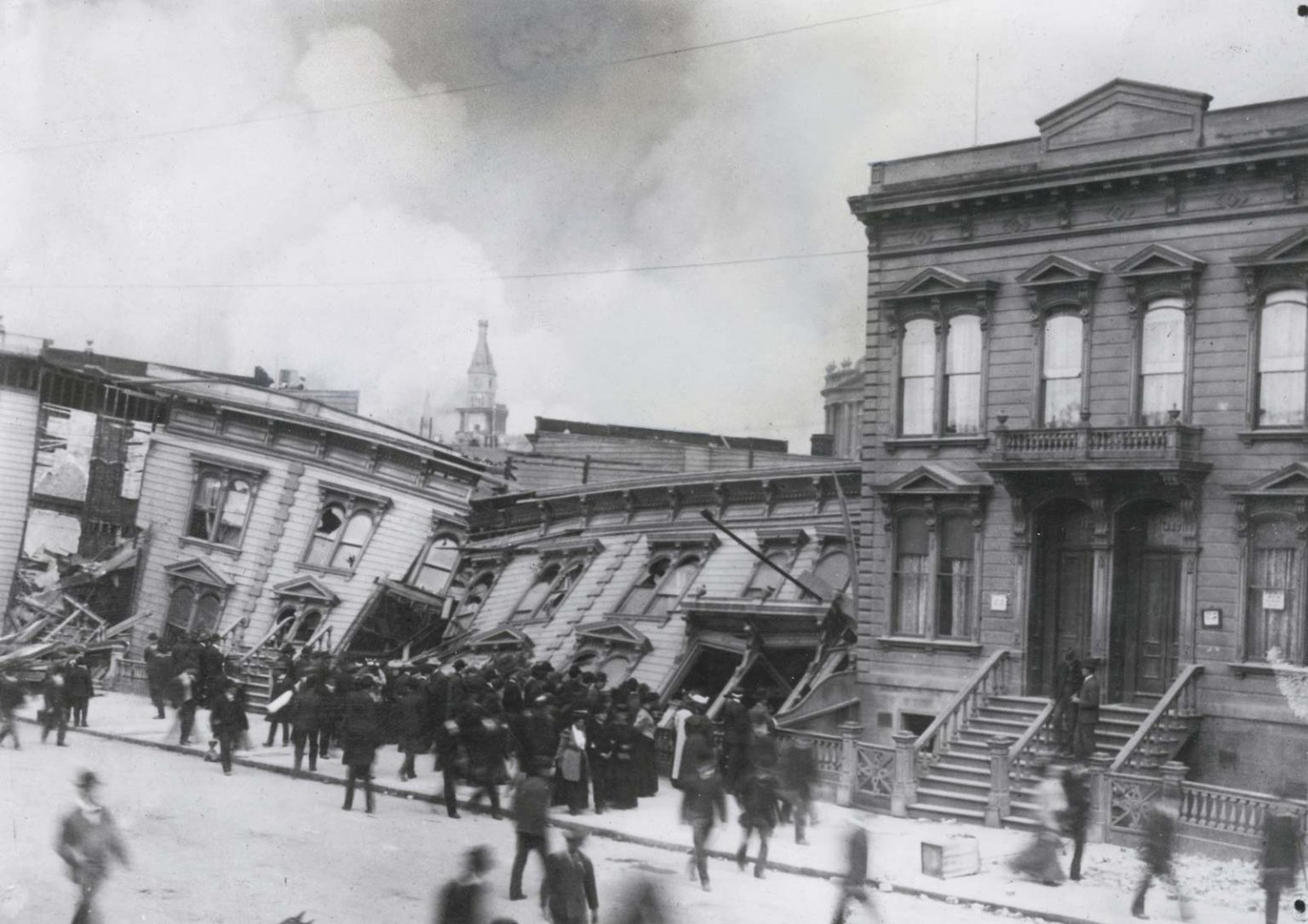The Great San Francisco Earthquake
On April 18, 1906, at 5:13 a.m., an earthquake estimated at close to 8.0 on the Richter scale strikes San Francisco, California, killing an estimated 3,000 people as it topples numerous buildings. The quake was caused by a slip of the San Andreas Fault over a segment about 275 miles long, and shock waves could be felt from southern Oregon down to Los Angeles.
San Francisco’s brick buildings and wooden Victorian structures were especially devastated. Fires immediately broke out and–because broken water mains prevented firefighters from stopping them–firestorms soon developed citywide. At 7 a.m., U.S. Army troops from Fort Mason reported to the Hall of Justice, and San Francisco Mayor E.E. Schmitz called for the enforcement of a dusk-to-dawn curfew and authorized soldiers to shoot-to-kill anyone found looting. Meanwhile, in the face of significant aftershocks, firefighters and U.S. troops fought desperately to control the ongoing fire, often dynamiting whole city blocks to create firewalls. On April 20, 20,000 refugees trapped by the massive fire were evacuated from the foot of Van Ness Avenue onto the USS Chicago.
Read more.
Suicide bomber destroys U.S. embassy in Beirut
The U.S. embassy in Beirut, Lebanon, is almost completely destroyed by a car-bomb explosion that kills 63 people, including the suicide bomber and 17 Americans. The terrorist attack was carried out in protest of the U.S. military presence in Lebanon.
In 1975, a bloody civil war erupted in Lebanon, with Palestinian and leftist Muslim guerrillas battling militias of the Christian Phalange Party, the Maronite Christian community, and other groups. During the next few years, Syrian, Israeli, and United Nations interventions failed to resolve the factional fighting, and on August 20, 1982, a multinational force featuring U.S. Marines landed in Beirut to oversee the Palestinian withdrawal from Lebanon.
Read more.
Martin Luther defiant at Diet of Worms
Martin Luther, the chief catalyst of Protestantism, defies the Holy Roman Emperor Charles V by refusing to recant his writings. He had been called to Worms, Germany, to appear before the Diet (assembly) of the Holy Roman Empire and answer charges of heresy.
Read more.








